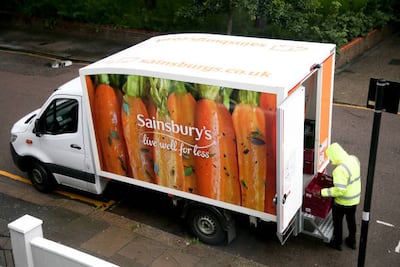The Covid-10 pandemic forced retailers to progress “years in months”, with omnichannel and quick commerce becoming central to business models faster than most had anticipated.
Recent data confirmed that there is no turning back from the seismic change we have witnessed, with 30 per cent of total sales in the UK in November taking place online, and “click and collect” expected to represent 13.9 per cent of online sales this year.
Similarly, in Germany, online sales during the 2021 Christmas trading period were expected to hit €23 billion ($26bn), a 31 per cent yearly increase. Across Western Europe, there are also now about 30 companies currently competing in the “quick commerce” market for groceries, many of which were established within the last year to meet consumer demand.
Retailers seeking to stay relevant in this fast-moving environment must act now to ramp up their digital strategies for 2022 and beyond considering these priorities: they must innovate using digital tools across the business and they must find the right balance between organic investment and partnerships to speed up transformation. It is important also to leverage first-party data to personalise the shopping experience.
Creating more — and better — data to support assortment, supply chain and pricing decisions is essential, as is exploring new revenue streams, such as retail media, which simply means advertisements placed on a retailer’s website or app by a brand.
However, when it comes to digital transformation, it is critical for decision makers to separate the hype from reality that will deliver a return on investment. For example, a global survey of 3,000 executives by the Massachusetts Institute of Technology in 2020 revealed that only 10 per cent of companies using artificial intelligence reported benefits.
One reason behind this trend is that few companies are actually configuring their organisations to use AI or other cutting-edge technology.
To achieve effective execution of their digital plans and unlock value, companies must commit to new business processes, as well as organisational and cultural changes.
Training is key in making the interaction between humans and technology more effective. These are necessary steps to move from a successful proof-of-concept to an initiative that can deliver ROI.
Another important consideration for retailers is to turn to “new economy” partners to cover specific capability gaps. It can help advance companies’ digital strategy in a quicker and more cost-effective manner. However, this should be defined carefully by each business according to the specific stage of its digital transformation and strategic goals.
The UK’s second-biggest supermarket chain Sainsbury's has partnered with food delivery platform Deliveroo to offer rapid delivery from local stores. French supermarket group Casino is leading a similar initiative with the German delivery company Gorillas, promising instant delivery of Monoprix and Franprix products ordered through the app. Casino has also bought a stake in the German start-up to expand the collaboration.
Traditional retailers are also harnessing big data through partnerships to unlock insights and personalise the customer experience, maximising as well as opening new revenue streams.
In September, Casino and another French grocer Intermarche created a joint venture to bring their innovative data services offering to food manufacturers. Another French retail major Carrefour recently set up a platform to provide brands with customer insights based on data collected from the group’s 80 million clients around the world.
Big British retailers, including Boots and Tesco, are also looking to capture brands’ advertising money through the recent launch of their own media networks.
As retailers continue to capitalise on the wealth of data drawn from customers, monetising media estates — from physical shelves to mobile phones and computers — is the next step for them in strengthening their role as digital ecosystems.
As with retail media, it has the potential not only to boost a company’s core business but also to create new revenue streams that will support the profitability of the overall group.
With huge amounts of data and cheaper-than-ever storage, analytics, AI and intelligent automation are the cornerstones of the intelligent enterprise. In retail, decision-making powered by data can revolutionise all areas within the business, from buying and assortment to pricing and supply chain management.
Big data analytics can suggest more relevant assortments to specific stores — tailoring merchandise to the preferences of a wealthier district or a less affluent one.
Data can also help retailers to move away from mass promotions by offering the right level of discount to the customer at a certain time of their buying journey, based on historical data, seasonal trends and patterns of online behaviour.

Crucially, smarter, crisper data also helps to reduce the effects of immediate issues facing the industry such as supply chain disruptions and labour shortages.
AI algorithms and advanced analytics being used in supply chain management are effectively streamlining processes and reducing costs, with an effect on both customer satisfaction and the company’s bottom lines.
Critical to mastering a digital effort — be it a project or an enterprise-wide transformation — is to put the customer at the centre and the business at the helm, and move away from prototype and hyped solutions.
Focusing on operational processes and training is what will help retailers to accelerate their digital journey and quickly reap the rewards of their investments.
Jean Laurent Poitou is a managing director with Alvarez & Marsal in Paris

